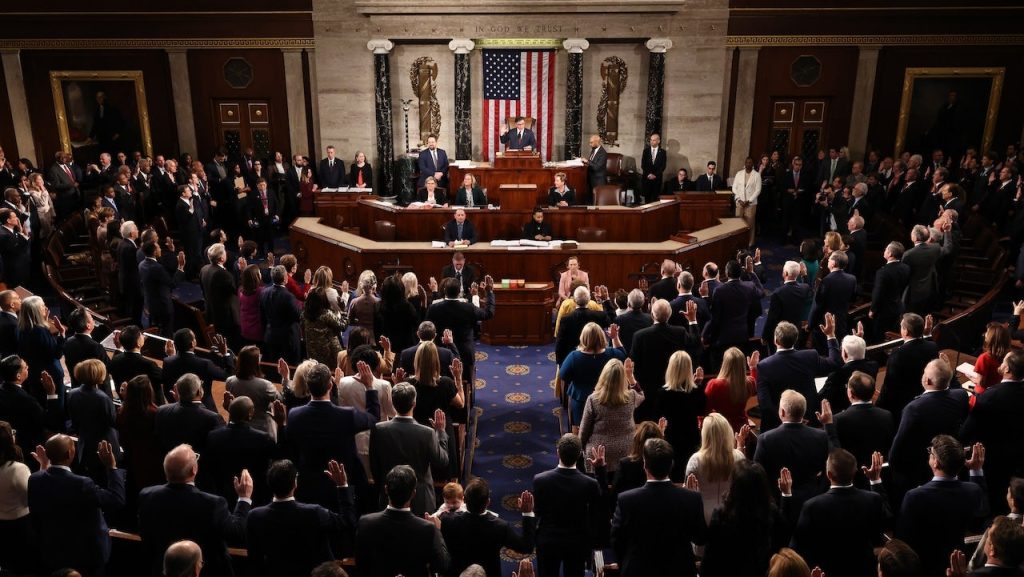The 119th Congress, under newly re-elected Speaker Mike Johnson, has prioritized legislation addressing transgender participation in women’s sports within its initial 100 days. The proposed bill, echoing previous iterations like the Protection of Women and Girls in Sports Act, aims to amend the Education Amendments of 1972 to define sex based solely on an individual’s reproductive biology and genetics at birth for Title IX compliance in athletics. This move marks a stark contrast to the previous administration’s efforts toward transgender inclusion in sports. The bill’s introduction reflects the Republican Party’s commitment to this issue, which became a focal point during the 2024 election cycle and resonated significantly with a broad segment of the electorate.
The prioritization of this bill signifies a significant shift in the political landscape regarding transgender rights. The Biden administration, through executive orders and proposed rules, had sought to expand transgender inclusion in various sectors, including sports. However, these efforts faced mounting opposition and were ultimately withdrawn amid growing public concern and a contentious political climate. The Democratic Party, which had championed legislation like the Equality Act and the Transgender Bill of Rights, also scaled back its support for transgender inclusion in sports, reflecting the changing political dynamics and public sentiment surrounding the issue. This shift paved the way for the Republican Party to capitalize on the issue, promising to address what they framed as a threat to women’s sports.
The Republican Party’s emphasis on this legislation reflects a broader cultural and political debate regarding gender identity and its implications for various aspects of society, particularly in competitive sports. Supporters of the bill argue that it aims to protect women’s sports by ensuring fair competition and safeguarding the integrity of women’s athletic achievements. They contend that allowing transgender women, who they argue have inherent biological advantages, to compete in women’s sports creates an uneven playing field and disadvantages cisgender female athletes. This perspective gained traction among voters concerned about perceived threats to women’s sports, contributing to the issue’s prominence in the 2024 election.
Opponents of the proposed legislation argue that it discriminates against transgender individuals and denies them equal opportunities to participate in sports. They assert that gender identity is distinct from biological sex and that transgender women should have the right to compete in women’s sports without facing discriminatory restrictions. They argue that such legislation perpetuates harmful stereotypes and reinforces societal biases against transgender individuals. The debate surrounding this issue highlights the complex intersection of gender identity, sports, and legal frameworks aimed at ensuring fairness and inclusion.
The reintroduction of this bill by Rep. Greg Steube signals a renewed effort to address concerns surrounding transgender participation in women’s sports. Steube and other proponents of the bill argue that it reflects the will of the American people, who they believe overwhelmingly support protecting women’s sports and preserving a level playing field for female athletes. They point to public opinion polls and election results as evidence of this widespread support. Conservative advocacy groups, such as Concerned Women for America and Heritage Action for America, have lauded the bill’s prioritization, echoing the sentiment that it is a necessary step to protect women’s sports and uphold traditional gender norms.
The passage of this bill in the House, while likely, is not guaranteed. Its fate in the Senate remains uncertain, and even if it passes both chambers, it could face legal challenges. The legal and political battle over transgender participation in sports is far from over, and this legislation represents the latest chapter in a complex and evolving debate. The issue continues to polarize public opinion and ignite passionate discourse on both sides. Regardless of the bill’s ultimate outcome, it is clear that the issue of transgender inclusion in sports will continue to be a significant point of contention in American society and the political arena.

